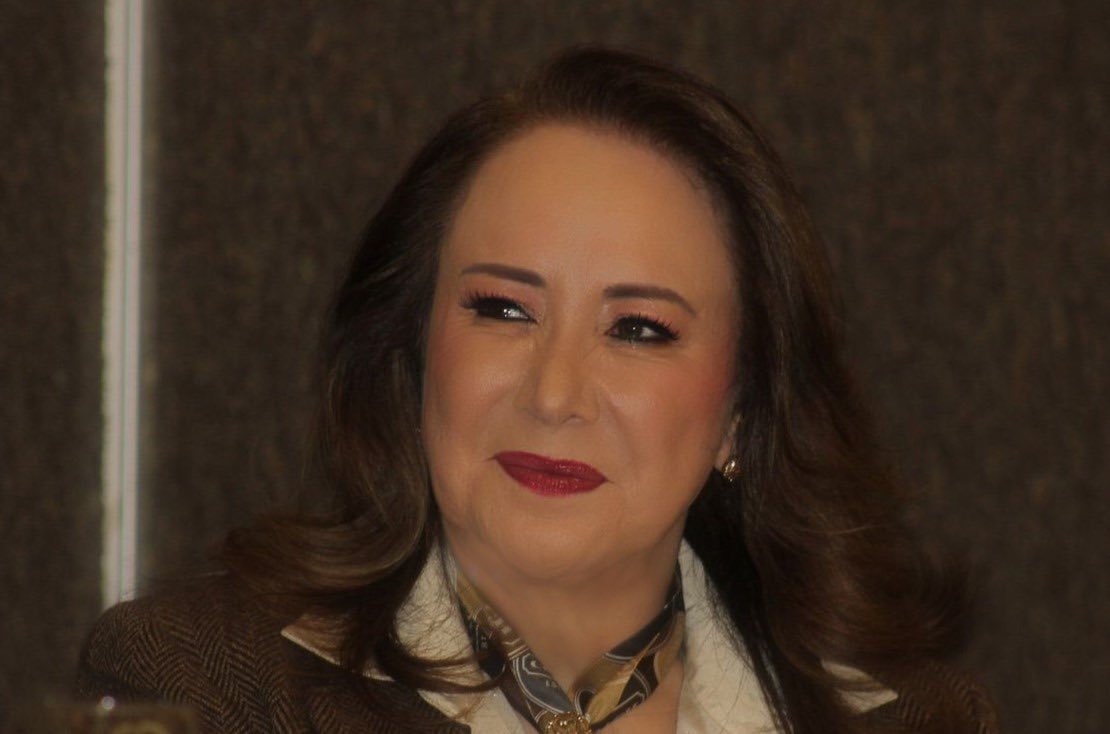MEXICO CITY (CN) — Already in hot water for having plagiarized her undergraduate thesis, a justice on Mexico’s Supreme Court now faces allegations of having done the same with her doctoral dissertation.
Nearly half of the thesis that earned Justice Yasmín Esquivel Mossa a Ph.D. from Mexico’s Anáhuac University in 2009 was copied straight from several other works, according to an investigation published Friday by the newspaper El País.
Esquivel has been at the center of a firestorm of controversy ever since allegations surfaced in December that she plagiarized her undergraduate thesis from the National Autonomous University of Mexico (UNAM) in 1987.
An UNAM ethics panel confirmed the plagiarism in January, but in a strange twist, the person whose work she copied later came out to say that he had copied her work, despite having turned his paper in the year before she did.
After reviewing Esquivel's doctoral thesis, El País found that 209 of its 456 pages had been copied verbatim and with scant citation from 12 other authors, including a former dean of UNAM, a former justice on Spain’s Supreme Court and a former head of the Inter-American Court of Human Rights, among others.
Two of the original authors confirmed the plagiarism to the newspaper, pointing out that she even copied their footnotes and references to “this book,” when her work was clearly not a book.
Spain’s current ambassador to UNESCO José Manuel Rodríguez Uribes told El País that he “immediately recognized” that her thesis contained “pages and pages” of text from a publication of his from 1998.
“She doesn’t put quotation marks, therefore it is a plagiarism of the book,” he said. “What she has done is copy and paste. It is evident that she directly copied [my work]. … She did it in a very crude manner.”
Esquivel apparently even copied a term for which Rodríguez personally reinvented the spelling. He said he initially doubted the decision to take artistic license, but said it now helps to prove that she copied his work.
Mexican jurist and legal researcher Miguel Carbonell also confirmed her plagiarism of his work, calling it a “double plagiarism,” since Esquivel took advantage of the research from the sources he cited in a book he published in 2004.
While the UNAM said in January that it “lacks the mechanisms” to invalidate her undergraduate degree, the private University Anáhuac may have different regulations to take such action against her.
But in what UNAM law professor Javier Martín Reyes called the “paradoxical” nature of the situation, the news of her doctoral plagiarism may have no bearing on Esquivel’s seat on the court.
“Her undergraduate thesis is the one that allowed her to eventually qualify to be a justice of the court, because that is the requirement: a bachelor’s degree in law,” he told Courthouse News. “A doctorate or other postgraduate degree is not a requisite for being a Supreme Court justice.”
Still, the news of more copied work is a “brutal blow” to Esquivel’s credibility. “This suggests that the problem is much more systematic,” he said.
However, the effect on her reputation could serve as grounds for her expulsion from the court, according to Sergio López Ayllón, a research professor in the law department at the Mexico City-based government think tank CIDE.
One legal requirement of justices on Mexico’s Supreme Court is that they “have a good reputation,” something López believes she no longer possesses.
“I think this plagiarism is enough to affirm that she does not have one,” he said in an email interview.
But it is unlikely that Esquivel will step down from the court, or that she will be forced out by the executive and legislative branches, considering the current political climate in Mexico. Esquivel was appointed by President Andrés Manuel López Obrador in 2019. His Morena party holds narrow majorities in both houses of Mexico’s Congress.
“The Senate could initiate a political trial, but it would depend on whether or not Morena wants to defenestrate her, or rather, if López Obrador decides to protect her,” said López Ayllón.
The researcher did not believe that Esquivel’s troubles are representative of a larger problem within Mexico’s judicial branch, but said they do reflect the encroaching of politics into the country’s highest tribunal.
“What it shows is the tension that exists between the judges with professional legal backgrounds, and those appointed for political reasons as part of the Fourth Transformation,” he said, referring to López Obrador’s plan to ostensibly alleviate poverty and root out corruption.
He said that while most of Mexico’s Supreme Court justices may not be “perfect,” they have proven professional legal experience, while justices like Esquivel and fellow López Obrador appointee Loretta Ortiz Ahlf have “serious deficiencies in their legal training.”
Subscribe to Closing Arguments
Sign up for new weekly newsletter Closing Arguments to get the latest about ongoing trials, major litigation and hot cases and rulings in courthouses around the U.S. and the world.








